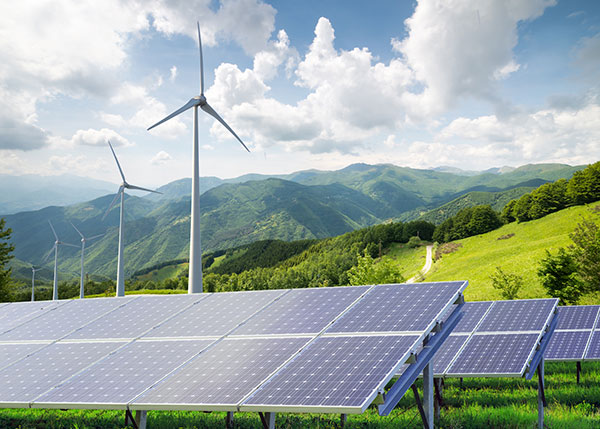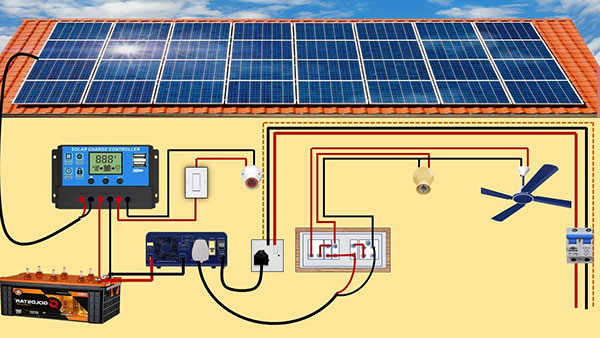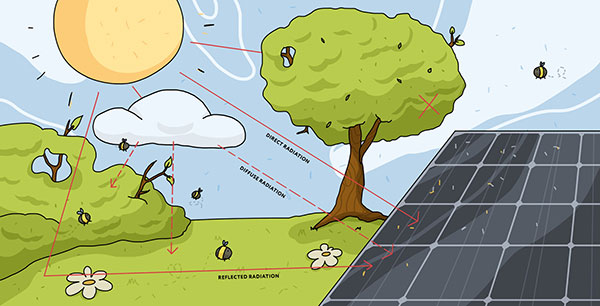Understanding the Lifespan of Solar Panels
Solar panels have a long lifespan and usually work up to
25–30 years. This is because solar panels are made of robust materials such as
tempered glass and
aluminum frames, which protect the photovoltaic cells from wind, rain, and temperature changes.
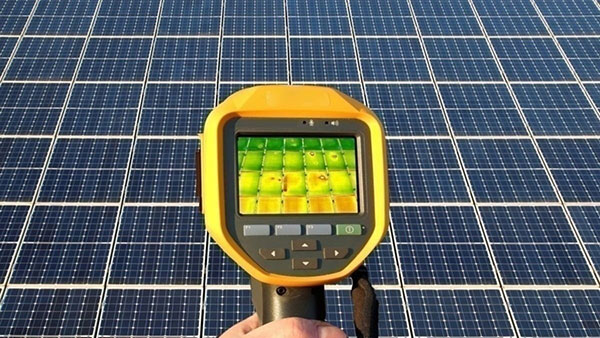
Factors Influencing Solar Panel Degradation
Any solar panel will experience a slowdown in efficiency or degradation over time. On average, the decline is about
0.5% on average per year or
0.8%. This means that initially, your panel will produce
100 watts and after
25 years, your panel will only produce about
92.5 watts. There are several factors that encourage these factors:
- Exposure to UV light: after 25 years, the encapsulant material that protects the solar cell can yellow and become less transparent, meaning less light hits the solar cell.
- Thermal cycling: daily temperature changes promote expansion and shrinkage of the materials in the solar panel, leading to microcracks in cells.
- Moisture ingress: when the sealant that surrounds the edge of the panel degrades, moisture can penetrate the panel and cause corrosion or delamination of the logistics.
Warranty and Performance Guarantees
Manufacturers usually provide a
25-year performance guarantees, which means that the panels will produce up to
80 percent of the capacity compared to the initial ones. Some high-quality panels offer a
30-year performance guarantee. Thus, the products are also offered the warranty from defects in the product materials. Either which way you look at this, the solar panels will continue to degrade over time.
The fundamental way to make your panels serving long, as any other surface or construct that provides benefits, is to keep the solar panels clean and inspect the equipment regularly for physical damage. An experienced electrician should also check the electrical connections and mounting system on a timely basis to ensure that everything is in good condition. Significant influence on the panel’s durability has the materials used for their production – from electricity generating cells to the glass on their exterior. Glass is considered the most common and durable materials. The frame of the panels is made of aluminum; electric current produced by the panels is conveyed using
high-grade copper or
silver. Desirable solar panel longevity increases with the use of advanced solar panel materials, which is often limited by the cost. For the majority of solar panels the following factors influence their durability and service life:
- The quality of materials whose properties will have positive influence on panel’s quality, advanced materials for the protecting protective glass, high-grade wiring;
- The technology of the panels’ make also has a significant impact – how they are glued and assembled;
- The quality of the equipment reception also matters – whether it is a inverter, charge controller, converter, and a battery. Examples of materials that have a positive impact on the solar panels longevity include tempered glass, which is used for many construction in the field of final consumption, framing glass, a construction of elements for which are made of aluminum, and covers from environmental influences are reliable therein – all this is “tried and tested“ and does not cause any special questions.
Physical Stress
This may include excessive snow loads being placed on the panels or an accidental impact that puts undue stress on the panel’s microcracks solar cells. Inspecting your solar panels regularly can allow you to catch both of these issues and resolve them before they can manifest as physical damage.
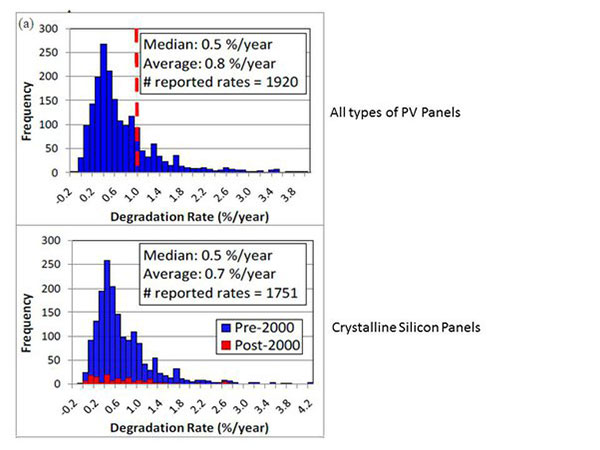
Electrical Problem
Any electrical issues that may occur are likely to stem from
erm or possibly some solar panels being wired together incorrectly. This will cause the panels to overheat which can lead to a spectrum of bad reactions. Therefore, to resolve these issues you may inspect your solar panels, check the wiring, and clean the solar panels because dirt can also cause the panels to overheat. In addition to that, the longevity of the solar panels can also be dependent on their compatibility with the inverter and panels’ mounting.
By considering each of these points and following the advice that is provided for them, it can be easily determined how long your solar panel will serve you and function effectively. Surprisingly, the commonly known average life of solar panels in the industry standard is about
25 to 30 years. This is the average period during which solar panels’ manufacturers offer a guarantee that the panels will operate at a given percentage of the efficiency level. Additionally, typical warranties provide that solar panels will have at least
80% of the initial output capacity after
25 years. The reason why the panels usually serve even longer is that on average solar panels degrade annually by less than a percentage and at the end of the
25th year, they can maintain
85% to 90% of the original power. Alternatively, to make sure that a panel meets the standards for safety and durability, the panels are tested according to
IEC 61215 and
IEC-61730.
Technological Advancements
Solar technology is constantly being developed in an attempt to improve the lifetime and efficiency of the solar panels. Advancements in materials, making process, and the design of the panel provide very durable and resilient solar products. By conforming to the industry standard, solar panels manufacturers always make sure that their product will provide us with reliable and sustainable energy for a number of decades.



